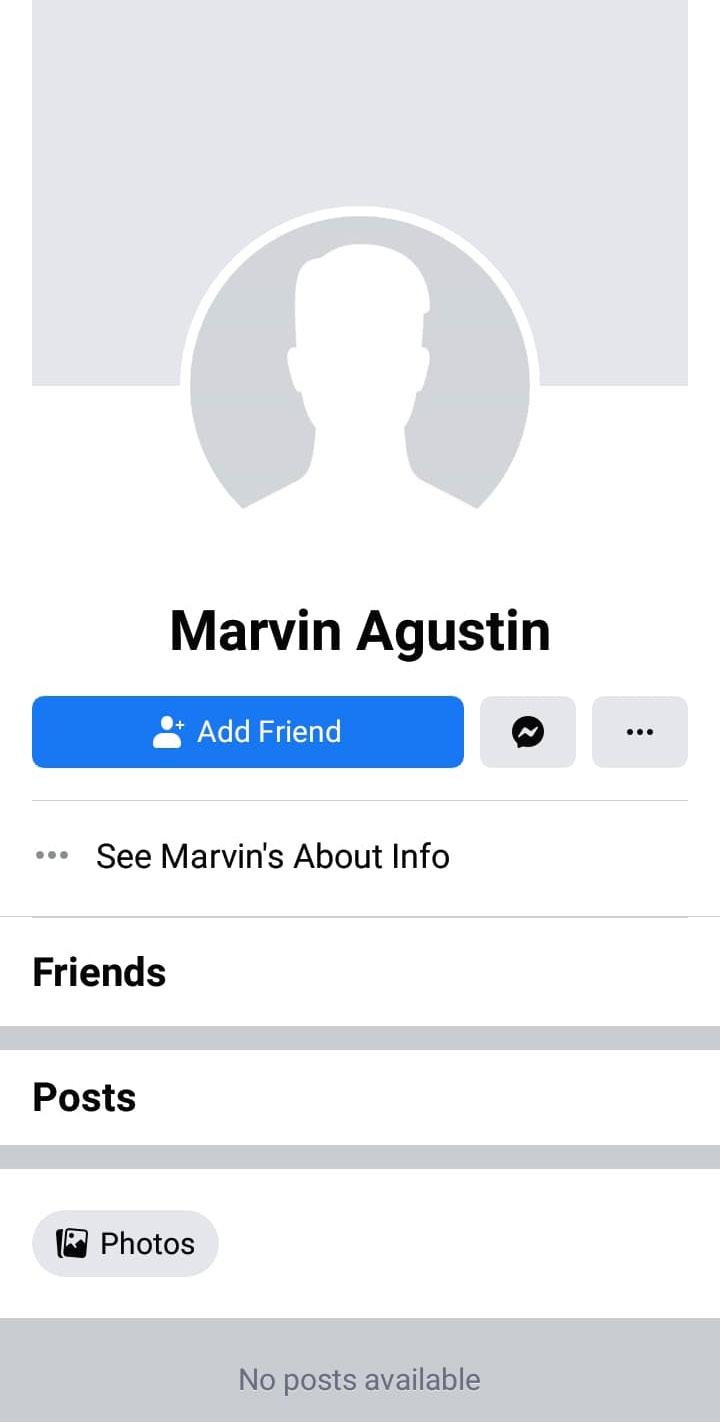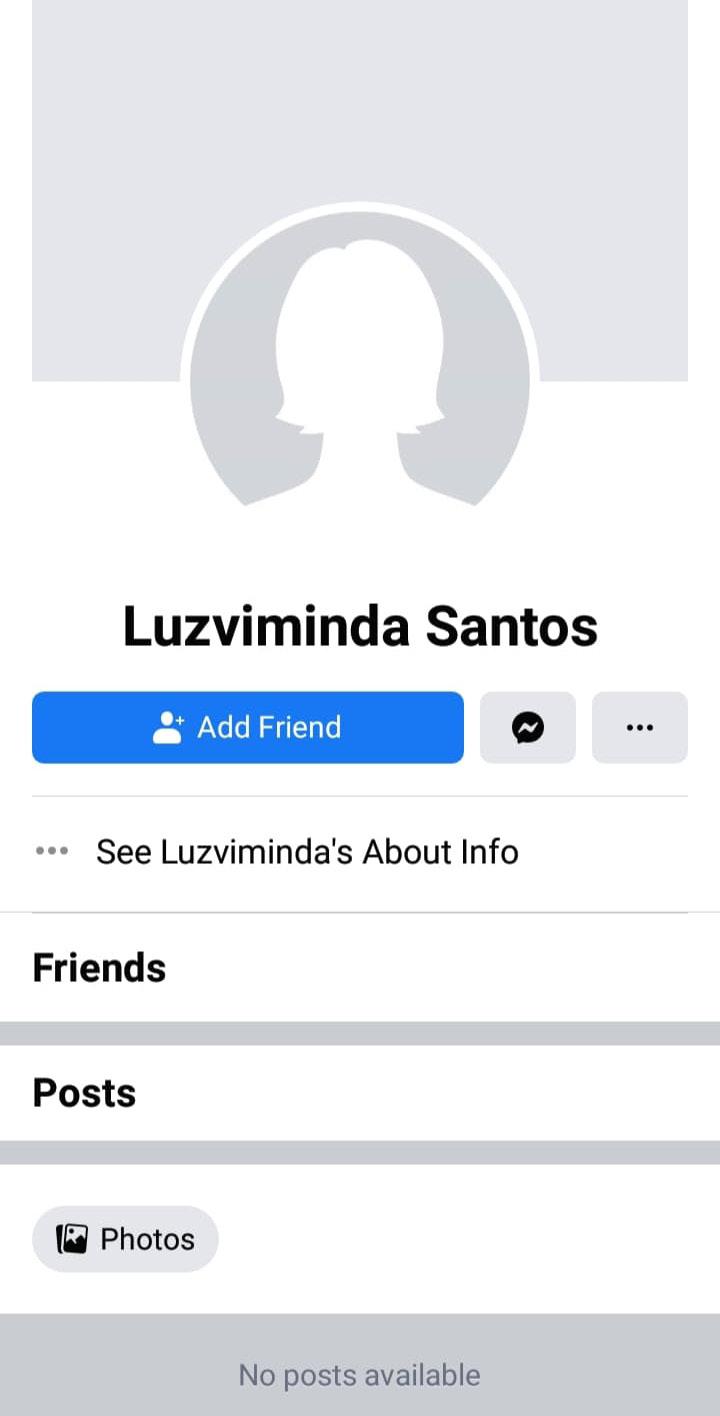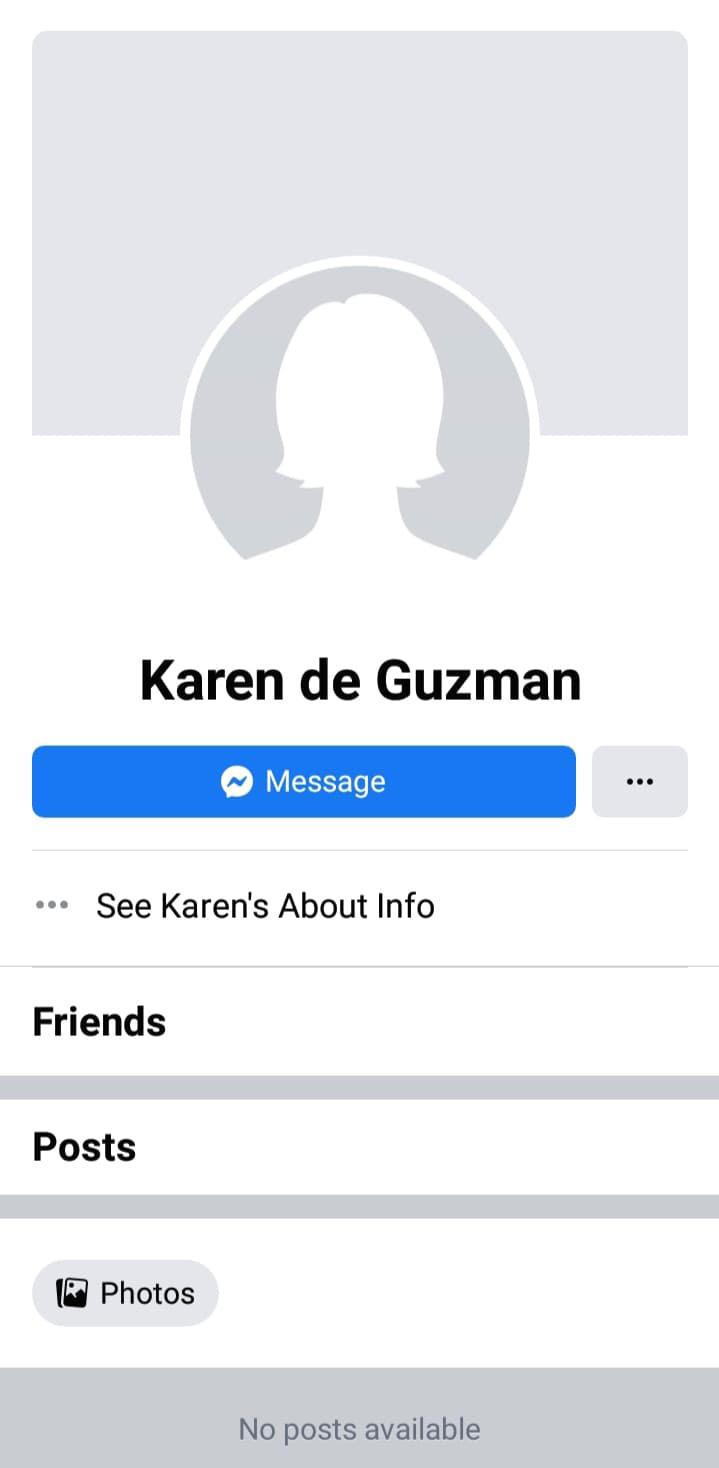
9 minute read
Surge of fake Facebook accounts feared to sow harmful disinformation
COVID-19 Special Issue Volume 40, Issue 4

Advertisement


rundowns
Surge of fake Facebook accounts feared to sow harmful disinformation


Mecaela Mae GUMADE
Thousands of Facebook users, including some students and faculty members of Pamantasan ng Lungsod ng Maynila (PLM), clamor against the sudden proliferation of impostor accounts on the social media giant last June.
Surge of these fake accounts alarmed netizens as these profiles, which are commonly empty aside from bearing the names and sometimes even have few photos of the original users, may sow false information. Adding to the unrest are reports that some users receive death threats from their poser accounts.
The rise of dummy accounts first came into light when Tug-ani, the official student publication of University of the Philippines-Cebu, found several profiles bearing the names of arrested student activists that surfaced days after their initially peaceful protest to junk the railroaded Anti-Terrorism Bill last June 05, 2020.
In a statement, the UP System assured their students, faculty, and alumni that their data protection officer had tapped the National Privacy Commission (NPC) for help in reporting fake accounts directly to Facebook.
These cloned accounts further peak in number in the succeeding days, affecting students from other universities, as well as journalists, activists, personalities, and active Facebook users.
Several other university officials urged their communities to remain vigilant from fake profiles and advised them to instantly report accounts that seem "inauthentic."
Privacy Commissioner Raymund Enriquez Liboro said that despite past complaints regarding fake accounts, this large-scale surge of profiles is unusual.
NPC already coordinated with Facebook to monitor and report its findings of these multiple dummy profiles.
Moreover, the social media giant stated that they are conducting further investigation and "taking action on any accounts that violate [their] policies."
Justice Secretary Menardo Guevarra said that the department's Office of Cybercrime will be conducting its own investigation on the proliferation of fake accounts, in coordination with the counterpart units within the National Bureau of Investigation (NBI) and the Philippine National Police (PNP).
However, in an interview with dzMM Teleradyo, NBI Cybercrime Division chief Victor Lorenzo dismissed the surge of fake accounts to be "in all probability, a glitch in the system", stating that it is "very hard to create an account on Facebook these days if you're creating multiple accounts under one ID, one cellphone number, one location."
FAKE ACCOUNTS SPECULATED TO SILENCE VOCAL ONLINE GOVERNMENT CRITICS
Despite NBI's claim, victims of fake accounts don't believe that it's all that simple, as some of them even received malicious messages from these impostor accounts.
Emergence of these fake profiles was first noticed amidst successive days of rampant calls on various social media platforms to junk the railroaded bill, and now ratified, Anti-Terrorism Law.
Consequently, these accounts seemingly target students, journalists, activists, and vocal dissenters of ATL as they discovered not just one, but multiple fake profiles bearing their identities.
Republic Act No. 11479 or the Anti-Terrorism Act of 2020 received tumultuous backlash from numerous groups, organizations, institutions, personalities, and individuals due to what they argued to be an unnecessary law amidst the already dire situation of the ongoing pandemic.
Critics of the said law condemn its seemingly broad and vague terms which are open to abuse, easily accusing and branding anyone as 'terrorists' without undergoing due process.
Furthermore, ATL is accused of having unconstitutional provisions and are feared to be used for stifling freedom of expression and the right to dissent.
PLM President Emmanuel Leyco released a statement on his official Facebook page last June 07, 2020, that he stands with the academic community and the rest of the Filipino people in rejecting the "Terror Bill." "We need public laws that encourage creative thinking, not stifle it by allowing possible misinterpretations of constitutionally protected exercise of freedoms as a 'terroristic act," he said.
The OnePLM alliance, constituting of university's student councils and organizations, released a joint statement in opposition of the ATL before and after its passing. "We call on our lawmakers to withdraw their support from the bill and for the President to veto the AntiTerror Bill. We also enjoin everyone to register their opposition to the Anti-Terror Bill and collectively oppose any future measures that will bank on our civil liberties painstakingly fought by our precedessors!"
The alliance also marched along with numerous progressive groups and individuals, joining in the collective call to sack the ATB on the "Grand Mañanita" held at the University of the Philippines-Diliman on June 12.
Despite the legislation of the ATB into law last July 03, the outcry of various nationwide sectors to repeal it further amplified.
As of this writing, the ATL is being persistently challenged, with over 29 petitions calling for it to be vetoed already filed in the Supreme Court.


rundowns
COVID-19 COULD PUSH HALF A BILLION PEOPLE INTO POVERTY
Additional people in poverty due to a 20% income drop caused by a Covid-19 recession*
* Poverty level - people earning below $5.50 per day
4.7M
Other High Income
54.3M
Latin American and Carriebean
30.5M
Europe
44.9M Middle East and North Africa
44.6M
Sub Saharan Africa
SOURCES
Data: Oxfam via Statista Map: Vecteezy
30.5M Central Asia
239.8M East Asia & Pacific
128.8M South Asia
PH’S “NEW NORMAL”
Economic and social repercussions
Fatima Rayyan SALABI
President Rodrigo Duterte alerts the Filipinos of the circumstances as the country moves on to a socalled “new normal” on June 1, 2020 as he lifted one of the strictest and longest lockdown in Southeast Asia to rebuild the country’s devastated economy.
Ever since then, community quarantine protocols and the levels of quarantine restrictions among different cities and provinces have been re-updated and reextended.
On Monday, June 29, 2020, Malacañang claimed it was winning the fight against COVID-19. However, on Tuesday, the President extended the General Community Quarantine (GCQ) in Metro Manila until July 15, and Cebu City still remained under Enhanced Community Quarantine (ECQ).
“The answer really is up to you,” Pres. Rodrigo Duterte said in his address as he warned unaware possible carriers of the virus of their role in shooting up the spread even more, “Simple lang ang hinihingi ng gobyerno… ‘wag na ho muna kayong lumabas,..stay healthy.”
The solution to the problem seems to be as simple as not stepping outside of your house for a year, however, varying circumstances among different socioeconomic groups have left many, if not most, of the population with confusion and an understandable anxiety in what exactly the future holds for the citizens and the country under the “new normal” regime.
PH POVERTY INDEX AND ECONOMY
According to a report by Oxfam, half a billion of the world population, about 370 million coming from the East Asia, Pacific, and South Asia alone, being pushed into the poverty level could be the future unless urgent actions are taken.
World Bank (WB) analysts reported that the recession would likely worsen poverty in the Philippines, and delay its bid to becoming an upper middle-class country by two years.
The unemployment rate also reached its highest record in the Philippines, with 4.99 thousand jobless jumping up to 7.25 million in the June quarter 2020.
According to the June 2020 Philippines Economic Update: Braving the New Normal by the WB, real time tracking of the impact of COVID-19 suggests Philippines has yet to experience the worst effects of COVID-19 as the abrupt decline in economic activity continues to deepen.
In another light, WB revealed that accelerating public spending, supportive fiscal policies, a stronger push on public investment, the recovery of global growth, and the expected increased economic activity in the upcoming 2022 national elections are reasons to expect the return of economic growth and improvement of poverty figures in the following two years.
However, strengthening the capacity of the health care system to control the outbreak while protecting the poor and vulnerable households still remains an urgency at the moment for the country as it battles the recent economic shocks.
TRAVEL, BUSINESS, AND DIGITAL ECONOMY
Since the strict restrictions on movement, travel and businesses have been one of the most hit by the new measures.
“Travel, as we know it, will change forever. That is why it is important that we embrace the new normal,” Department of Tourism (DOT) Secretary Berna Romulo Puyat said.
Even as landmarks gradually re-open and strict travel restrictions are lifted, tourists spots and public events and establishments, such as fairs, malls, and restaurants, are expected to receive a much smaller and controlled number of visitors as crowded events become risky and domestic and international flights lose demand.
Consequently, the Air Carriers Association of the Philippines (ACAP) reported it may lose about P250 billion until the end of the year, while the prolonged global recession dominates companies’ risks perceptions, according to the World Economic Forum.
A rapid survey by the government revealed that more than half of the micro, small, and medium enterprises (MSMEs)—which constitutes most formal business establishments in the Philippines—have already closed due to the enhanced community quarantines, while those that remained open suffered a 66.5 percent drop in sales.
Meanwhile, whereas most businesses are downscaling, companies that invest in digital technology are flourishing amidst the pandemic.
Being self-quarantined at a mass scale further spurred consumers to utilize electronic payment and the internet for the purchase of goods and services such as food delivery and utilities.
“This change in consumer behavior and firm operations is expected to continue even after quarantines end,” Rong Qian, WB Senior Economist remarked during the launch of the Philippines Economic Update, June 2020, “The country must ramp up its efforts to accelerate the digitalization of the economy.”
According to the Economist Intelligence Unit’s 2020 Inclusive Internet Index, with less affordable smartphones and mobile data in the global context and relatively slow mobile internet speed, the Philippines is considered among Asia’s weaker countries in advancing internet inclusion.
Without shifts in investment, the country may be straining its existing networks and internet infrastructure due to pandemic-driven data demand, and it would mean neglecting the inevitable change in the way of life, i.e. online is going to be how people buy essentials now, pay bills and utilities, attend school, and earn income.
SOCIAL DISTANCING AND DIGITAL BRIDGING
Many workers, students, and citizens will be left behind as the country transitions to a “new normal” where work, education, and essential activities and transactions shift to online platforms.
Nevertheless, with a population of 73 million internet users and with most households having more than one mobile phone as of January 2020, the tools and connection are already present in the Philippines.
The City of Manila and Quezon City have already confirmed to provide tablets, laptops and other appropriate learning materials to public school students and teachers for the distant learning scheme for the upcoming school year.
Likewise, the Department of Information and Communications Technology (DICT), in coordination with the Department of Education (DepEd), the Commission on Higher Education (CHED), and the Technical Education and Skills Development Authority (TESDA), have started lining up month-long free webinars last June for teachers, students, government and private employees, and the general public in different regional clusters.
“We hope that these online trainings will help Filipinos in their transition to the new normal,” DICT Secretary Gregorio B. Honasan II said.










